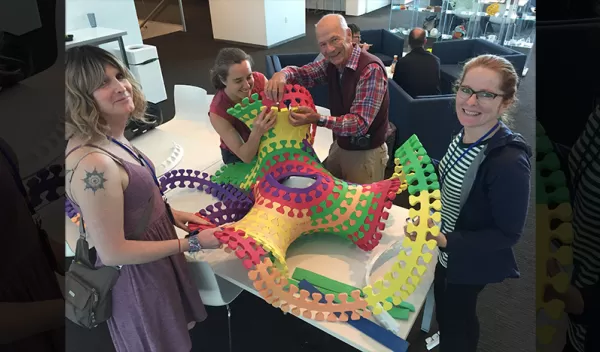
NSF invests in incubator institutes to keep US on cutting edge of mathematical sciences
Mathematical Sciences Research Institutes, funded by the U.S. National Science Foundation, act as incubators to tackle problems ranging from health care and economics to data science and artificial intelligence. By engaging multiple research communities, the institutes enable the field of mathematics to respond quickly to national needs.
NSF is investing more than $118 million over five years for six awards to Mathematical Sciences Research Institutes. In addition to five renewal awards for existing institutes, one is brand new: the Institute for Mathematical and Statistical Innovation at the University of Chicago. The new institute, in collaboration with Northwestern University, the University of Illinois at Chicago, and the University of Illinois at Urbana-Champaign, will convene both leaders in the field and junior trainees for long-term programming such as workshops and residencies that help to shape the direction and progress of mathematical research in the United States.
"The influence of mathematical sciences on our daily lives is all around us and far-reaching," says NSF Division Director of Mathematical Sciences Juan Meza. "The investment in these institutes enables interdisciplinary connections across fields of science, with impacts across sectors of computing, engineering, and health."
Timely and thematic workshops offered by the institutes can identify promising new areas for collaborative work. One program led to using machine learning for the design of catalysts, energy materials, and even new drugs. A recent workshop focused on mathematical models used in studying COVID-19. The Mathematical Sciences Research Institutes are an important component of the U.S. research infrastructure and help keep the U.S. on the cutting edge through their international scale programming.
